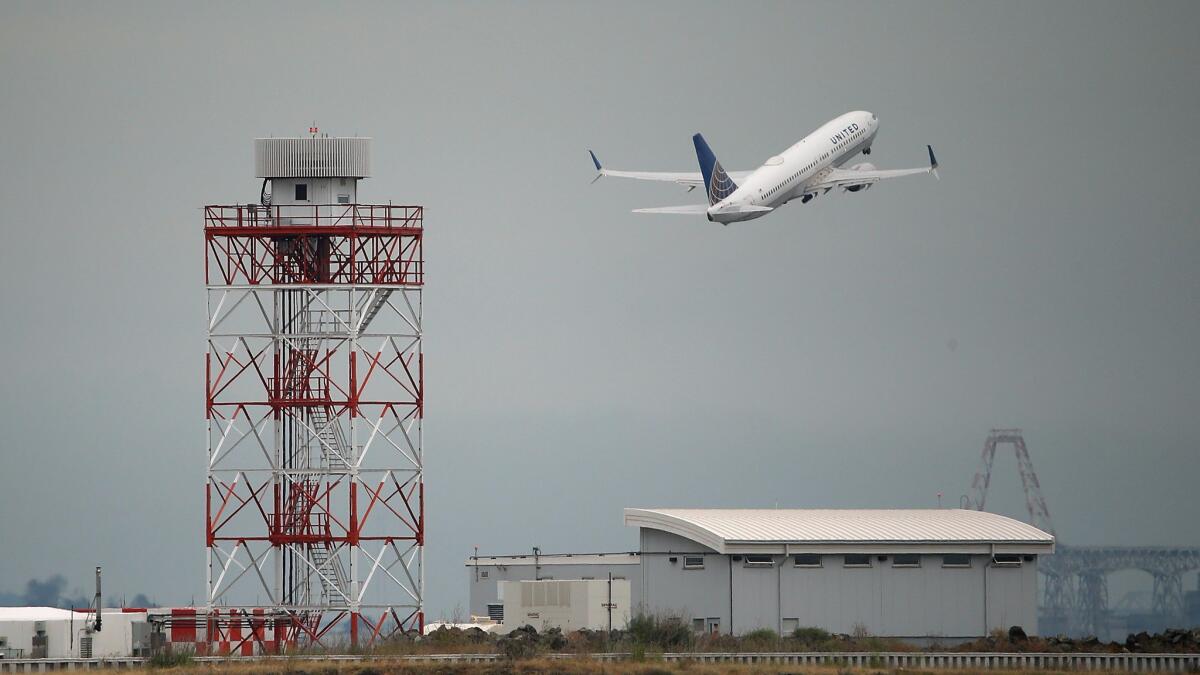A fuel fee can reduce airline emissions — but it likely will mean higher airfares, study says

- Share via
After more than six years of negotiations, representatives of the world’s airline industry reached a tentative agreement on airline emission standards to cut carbon dioxide, the fastest growing source of greenhouse gases.
But environmentalists weren’t pleased, noting that the proposed emissions standards would apply only to new planes delivered after 2023.
UC Irvine economics professor Jan Brueckner has offered a few other ideas to cut airline emissions faster — though his suggestions likely would mean higher airfares.
The fastest way to push down airline emissions would be to add a fuel charge of 39 cents per gallon, forcing airlines to use less fuel, according to Brueckner’s new study. The fee would reduce emissions nationwide by 2.2%, generating $117 million in environmental benefits annually. But airlines likely would pass that fee onto fliers in the form of higher airfares.
“If you levy a tax at the right place, it will have a bigger impact,” Brueckner said.
Airlines for America, a trade group for the nation’s airline industry, opposes the emissions fee.
“The fact remains that airlines are green and getting even greener — and are doing so without unnecessary tax increases that drive up the cost of flying and shipping goods,” said Vaughn Jennings, a spokesman for the trade group.
Brueckner found one other way to reduce emissions and keep travelers happy: Eliminate delays that result in planes idling with their engines running. If airlines cut the percentage of flight that are delayed from 20% to 17%, that would generate nearly $50 million in annual environmental benefits, the study found.
To read more about the travel and tourism industries, follow @hugomartin on Twitter.
More to Read
Inside the business of entertainment
The Wide Shot brings you news, analysis and insights on everything from streaming wars to production — and what it all means for the future.
You may occasionally receive promotional content from the Los Angeles Times.










